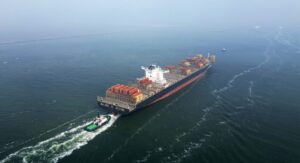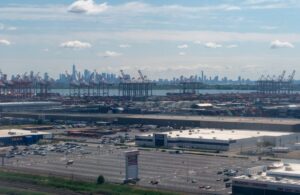A.P. Moller-Maersk (Maersk) has opened its first Inland Container Depot (ICD) in Russia at the Port of Novorossiysk, the largest hub on the Black Sea.
In a statement, the carrier said the ICD will operate two rail services and is equipped with fertilisers, liquid cargoes as well as general and palletised cargo handling facilities.
The facility is a key pivot point in supply chain management. Spread across three hectares, it has capacity to store 1,500 TEU and it is expected an annual turnover of 25,000 containers, Maersk said.
The new facility reflects Maersk’s strategic plan to grow logistics and services capabilities for customers’ supply chains by adding more capacity and flexibility for decision-making.
Zsolt Katona, Head of Maersk Eastern Europe, said, We’re excited about adding more Russian supply chain distribution capacity and expertise at a time when customers are looking to find new ways to keep pace with consumer demand and to be more sustainable with their carbon emissions.
“The logistics goal of this facility is to allow customers more time and flexibility in decision-making. They can now easily make destination routing decisions upon arrival at the discharge port instead of at origin.
“Operating Inland Services in Novorossiysk allows Maersk to offer differentiated and unique End-to-End integrated solutions to its customers, from stuffing at the origin until delivering at overseas destinations.”
Ludvig Tarkhanyan, Managing Director at Europack LLC, also commented, “We work through all Russian ports and handle almost one million tons of exports in containers annually.
“Novorossiysk is one of the most important hubs, and we experience a lot of complexity there to accommodate our growing volumes and get reliable suppliers.
“Maersk is our top partner in Ocean and we strongly believe that expansion of Maersk into inland logistics will give us a unique opportunity to improve the quality of operations and make it more predictable.
“By getting one-stop-shop solution from Maersk we would be able to reduce workload and, consequently, add transparency and efficiency to processes to focus on trading our goods to wider geographies instead.”








